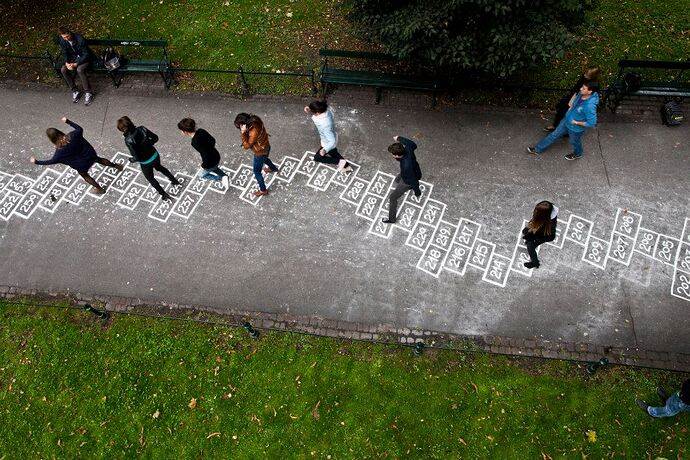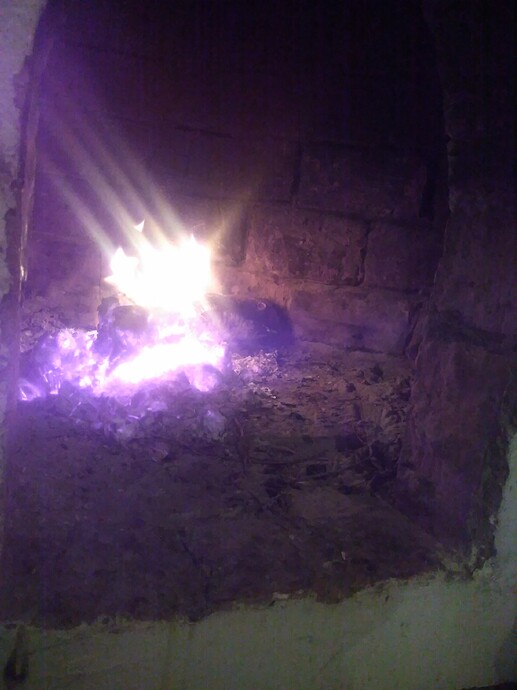Hi Edgeryders!
I’m sitting in the living room of the Open Village House (dar Nezza) in Sidi Kaouki right now, close to the fire that @johncoate started as every night since we are here, after a delicious dinner cooked from our housemaster @hazem <3
https://scontent-mad1-1.cdninstagram.com/vp/160064fc42fb333117251b23323390d2/5B048E6A/t51.2885-15/e35/27574518_183549745584845_8501494167334027264_n.jpg
- Spot the donkey in the picture -
The timing couldn’t be better to share both one idea that I’m working on since November, and how being actively involved in Edgeryders already re-shaped and modified this idea and my process.
Maybe that could be useful to all the people that are in Edgeryders and still didn’t grasp yet (as I did for years) how powerful this community could be on helping them with their project / professions / lives
<<< fast rewind <<<
my background is in Architecture (Urban Planning) and since 2009 I’ve started exploring urban games as a tool to change our cities from the bottom, use more the public space and create creative communities around that.
Our first project, CriticalCity Upload , was a pervasive game (which means that could be played everywhere and in every moment) that asked players to perform tasks in the public space.
A task could be, Hugs 10 strangers /
Sing a song out loud /
walk barefoot for 1 km /
improve a bench …etc…
Every year we have +100 tasks on the website and players could pick up their favorite, go outside, perform the tasks, take picture and videos, upload everything on the platform and get points (for a total amount of lot of creative stuff to do ![]()
It was a crazy adventure (4 full-time years of community management / event production / business models / pitch competition / night drives / weekend around Italy / etc) and a pretty successful one too, here is a website (in italian, sorry) with all the missions done (there were 20.000 at the end) by all our players (13.000).
After 5 year we realize that the project more than a urban transformation game, was a human transformation game: our players were empowered to an unexpected level, we lived unforgettable experience in public space, some of them get married or now they are raising families together and we create a very strong community based on the positive feelings that games arise, like, positive attitude, enthusiasm, lateral thinking etc…
You can imagine that after this experience (which was also professionally fundamental) It’s not a secret that I’m always looking for experiences / games that could recreate this kind of feelings on the participants.
During those last 5 years as “professional” game designers we create and produced also various street and urban games
the Getaway
Race the Future
Journey to the end of the night Milan
and last October Open Village Exploration.
All the game that you played as a child in the street were street games, Hide and seek, hopscotch, etc…
One fast way to create a street game (change of place as Munari states in his book Fantasia) is to take a sport -football, basket, you name it- and move it to the urban environment: here you have Urban Golf, Joga Bonito and the Basketball Playground.
Street games are very successful for different reasons:
- low tech (a ball, sticks, chalk)
- super flexible (easily adaptable in different contest: street, square, abandoned buildings)
- very common (everybody played some of that as a child and they have a worldwide strong tradition, also younger generations)
- low entry barriers (easy rules that kids can explain, simple goals, fast improvement cycles)
I always use them to start conversation with people that maybe I don’t know (this summer I was in a one-month artist residency: second night I asked if someone want to play a game that I knew, after 10 minutes, at least 4 other artist were sharing their games too, and that became also a performance.
>>> fast forward >>>
November 2017
Due to an application that I wanted to do I wrote down a concept for a research that want to explore the topic of street games, but, instead of waiting for the application to I want start immediately to research and work on it ![]()
I’ve called the project DISPLACED, and is a game related project that aims at studying and researching the street games and the game’s practices within the refugee populations in Europe and the Middle East.
Europe will, in the next 20 years, face an unprecedented migration pressure, on top of the failing of the system that is under our eyes right now.
In the long term I think that is important to highlight all the tools that could collaborate on creating a more tolerant system and a dialogue platform, I know, games are considered silly stuff, and the Refugee Crisis (or the European Political Crisis on the Refugees) is pretty hard shit, but still.
My goal is to collect and analyze common patterns and data on how young adults and kids are using games (and in particular street games) in these situations.
Part of the research will focus on the use of traditional games that are typical of their countries of origin, as compared with the use of new games that they have learned in their new hosting countries.
Games (street games) could be used as part of an integration process within the local communities of the hosting countries?
It’s a research project, which means that I still don’t know the output (a street games encyclopedia? A game toolkit that could be used in UNHCR camps?).
With this post I’m officially starting the first phase of the project, and I would love to receive your feedback and help…
------ pause ------
Why don’t you start researching what was already written about those topic here in Edgeryders?
Just click on research and put the term migration #refugee #games
--------- one month later and 60 Edgeryders posts later ------------
Holy shit I have to publish my post about the street games project!
This is what happens if you open yourself to the power of this kind of community.
I’ve decided to explore first what was already in here and the result was really amazing: right now I’ve collected at least 15 new thread to research just reading all the materials that were written on the last year, mainly inside the OpenCare thread, so in the next months I will expand my research following those links too.
But, in the meanwhile, I would love to hear from you anyway in particular on:
- things to read > similar research already on the net / reportage from the camps (@alex_levene / street games from different nations that are affected by the issue
- NGOs, professionals > that are exploring similar strategies in those context (@Sabouny with your clownerie approach probably there is a lot of similarities?)
- opportunity to set up ground research trip > 3 to 5 days in the different environment leading workshop about street games, learning the ones that are already played, collecting data, etc…
And of course general feedbacks about the process that I’m setting up, I’m a practitioner, not a researcher and I don’t have any idea about methodology.
I want to avoid the exploitation of the people on the ground and being the western designer that, research, as an alien, then goes away and whatever, (@amelia if I would have to use the ethnographer approach in this field how that could work?)
In your experience, what is the better way to approach this kind of research?
Thanks!
A picture of the fire that kept us company tonight


 My new project is actually digging more into playing in public spaces, whether through the use of popular street games or some other performance/clowning ideas.
My new project is actually digging more into playing in public spaces, whether through the use of popular street games or some other performance/clowning ideas.